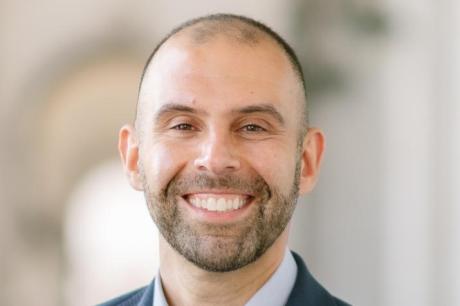For the first time at Duke University, the new Evidence Lab at the Duke Global Health Institute will fill a need for rigorous evaluation of global health programs and technologies under real-world conditions. Under the leadership of Rae Jean Proeschold-Bell, the DGHI Evidence Lab will partner with Duke faculty and their collaborators to extend research to diverse cultures and settings, and under less strict conditions than the initial studies that prove an innovation works.
Research on new health programs involves at least two steps: determining whether the program works under ideal conditions and whether and how the program can be tailored to work under real-world conditions. Most of the research at Duke falls into the first category, in which faculty develop innovative ideas and test them with controls in place. Yet the second kind of research is essential to understanding if the program still works with adjustments -- and adjustments are nearly always needed to culturally tailor a program and implement it in a less controlled setting. When well-done, research of this second kind provides information to allow new programs to achieve their desired health impact. The DGHI Evidence Lab will be the first at Duke to fill this need.
Evidence Lab staff may also work with global health funders who want strong evidence on a program’s effectiveness under community conditions.
“At Duke, we have access to hundreds of faculty members who are experts in research design and methods. And that’s important to evaluating technologies and services under real-world conditions,” said Proeschold-Bell, director of the DGHI Evidence Lab. “Often on-the-ground conditions constrain what kind of evaluation is possible, so you have to be creative if you want to study the impact of your work. We will offer innovative research methods by drawing on Duke faculty and experienced Evidence Lab staff.”
With a lens toward policy and practice, Evidence Lab staff will use a full range of rigorous and innovative research design and methods which include formative evaluation, impact evaluation, and policy research and dissemination. Evaluation activities are innovatively tailored to the specific project, with consideration of all research designs and data-driven recommendations.
“We approach each evaluation with the policymakers in mind and build in the data collection needed to answer the most pressing policy questions,” said Proeschold-Bell. “We take the time to craft useful, data-driven recommendations and disseminate them to a wide range of stakeholders.”
Increasingly, organizations that fund global health research are encouraging impact evaluation. Instead of primarily focusing on the number of people served, impact evaluation allows funders and policymakers to learn how projects affect targeted outcomes.
“Faculty want to expand their research throughout the world, but testing innovations across cultures and oceans takes time,” said John Bartlett, associate director for research at DGHI. “Evidence Lab staff will partner with faculty and their collaborators to make testing their technologies and programs under new conditions more manageable.”
The activities of the DGHI Evidence Lab can also generate new fieldwork placements for Duke students pursuing global health, including the Master of Science in Global Health and the global health major. These placements include opportunities to learn evaluation research, a highly marketable skill that is needed globally.
Proeschold-Bell is a clinical-community psychologist who has designed and conducted evaluations across a variety of interventions, including integrated physical and mental health interventions; sharing of electronic medical records; public health awareness and knowledge campaigns; and weight loss and stress reduction interventions. The research designs that she and members of the Evidence Lab Advisory Committee have utilized include cluster-randomized factorial designs, interrupted and multiple baseline time series designs, and randomized controlled trials.
For more information, contact Rae Jean Proeschold-Bell at rae.jean@duke.edu.



